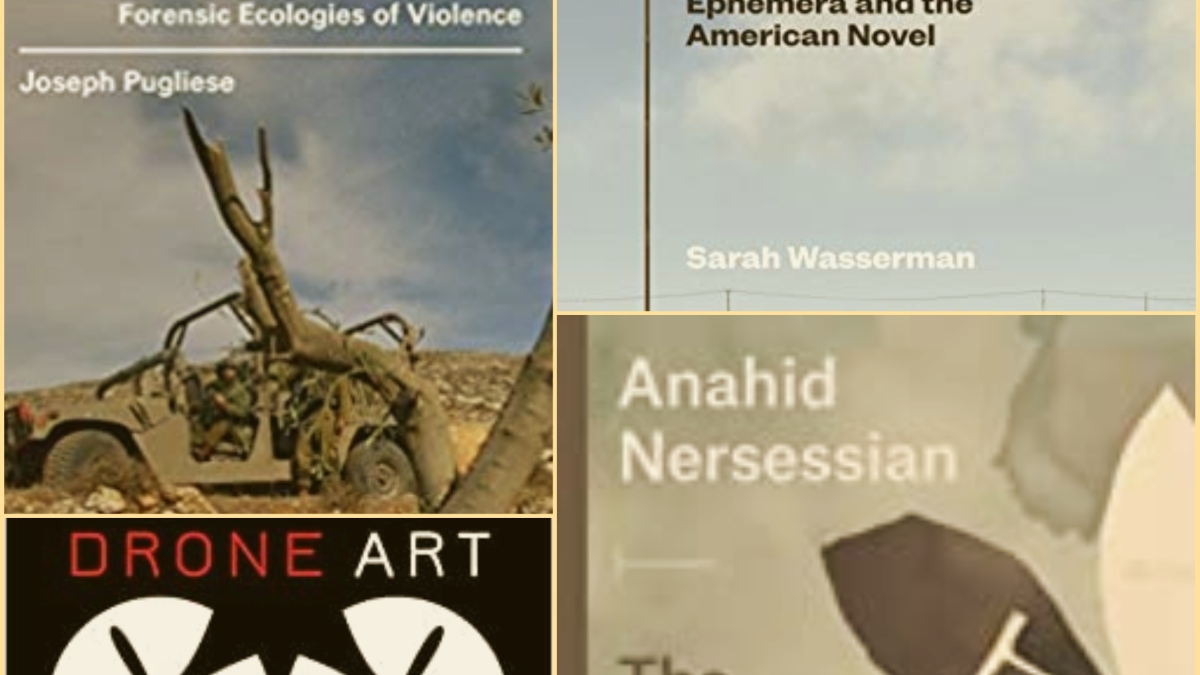ASU's Institute for Humanities Research announces 2022 book award winner

Arizona State University's Institute for Humanities Research (IHR) has announced that “Biopolitics of the More-Than-Human: Forensic Ecologies of Violence” (Duke University Press) by Joseph Pugliese has been selected as the winner of the 2022 IHR Book Award.
Established in 2008, the annual award celebrates outstanding writers whose contributions to the humanities change the conversation by fostering new directions for their discipline. Their nonfiction humanities-based books are judged by the IHR Advisory Board.
The three short-listed titles, covering topics such as war, ephemera and poetry, are: “Drone Art: The Everywhere War as Medium” (University of California Press) by Thomas Stubblefield; “The Death of Things: Ephemera and the American Novel” (University of Minnesota Press) by Sarah Wasserman; and “The Calamity Form: On Poetry and Social Life” (University of Chicago Press) by Anahid Nersessian.
“We are proud to add these four outstanding books to our 2022 IHR Book Award lineup of winners and distinguished nominees,” said Institute for Humanities Research Director Nicole Anderson, who recused herself from the voting process due to a conflict of interest in knowing the author of the winning book. “The IHR is looking forward to Professor Pugliese’s talk in October in celebration of his significant and timely book, ‘Biopolitics of the More-Than-Human.’”
In his book, Pugliese examines the concept of the biopolitical through a nonanthropocentric lens, arguing that more-than-human entities — from soil and orchards to animals and water — are actors and agents in their own right with legitimate claims to justice.
Examining occupied Palestine, Guantánamo and sites of U.S. drone strikes in Afghanistan, Pakistan, Somalia and Yemen, Pugliese challenges notions of human exceptionalism by arguing that more-than-human victims of war and colonialism are entangled with and subject to the same violent biopolitical regimes as humans. He also draws on Indigenous epistemologies that invest more-than-human entities with judicial standing to argue for an ethico-legal framework that will enable the realization of ecological justice. Bringing the more-than-human world into the purview of justice, Pugliese makes visible the ecological effects of human war that would otherwise remain outside the domains of biopolitics and law.
The virtual book award ceremony and Pugliese’s talk is scheduled for Oct. 4.
For more information on Institute for Humanities Research programs and events, visit ihr.asu.edu/.
More Arts, humanities and education
ASU film professor part of 'Cyberpunk' exhibit at Academy Museum in LA
Arizona State University filmmaker Alex Rivera sees cyberpunk as a perfect vehicle to represent the Latino experience.Cyberpunk…

Honoring innovative practices, impact in the field of American Indian studies
American Indian Studies at Arizona State University will host a panel event to celebrate the release of “From the Skin,” a…

ASU alum's humanities background led to fulfilling job with the governor's office
As a student, Arizona State University alumna Sambo Dul was a triple major in Spanish, political science and economics. After…